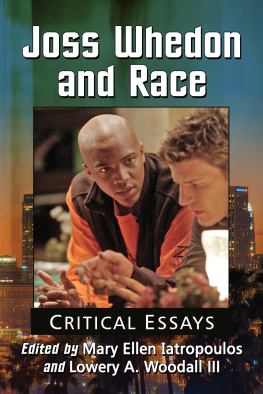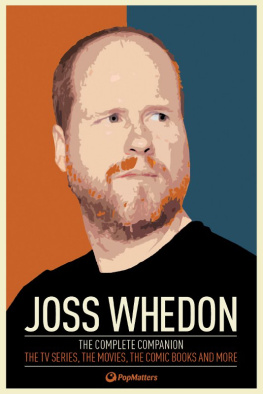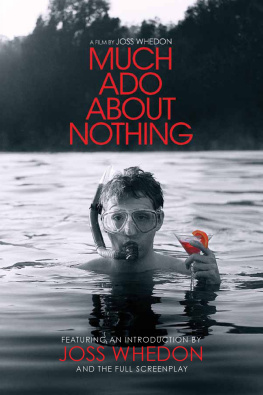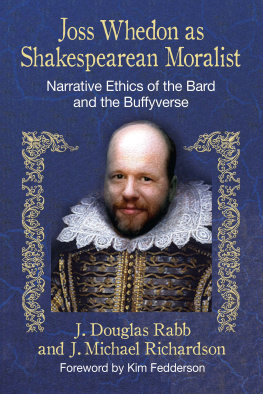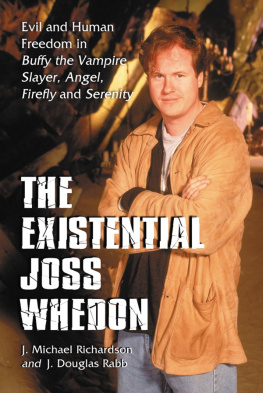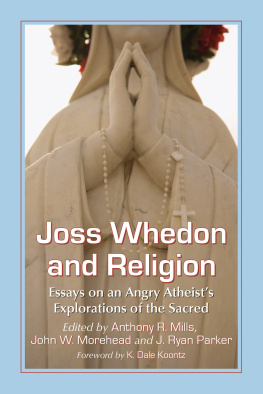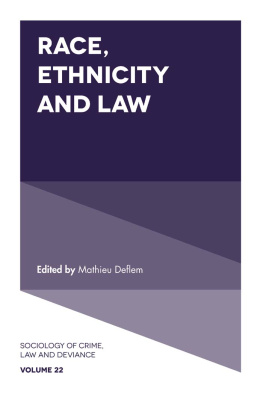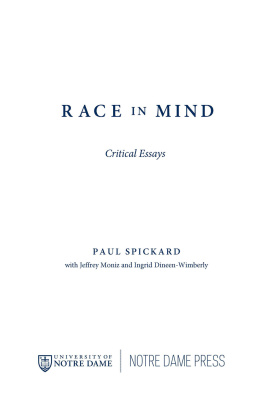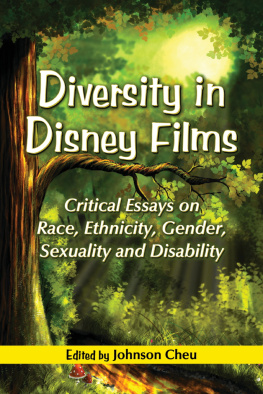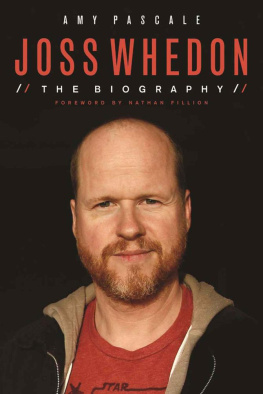
Joss Whedon and Race
Critical Essays
Edited by MARY ELLEN IATROPOULOS and LOWERY A. WOODALL III

McFarland & Company, Inc., Publishers
Jefferson, North Carolina
Nobodys Asian in the Movies, words and music by Maurissa Tancharoen and Jed Whedon, from Commentary! The Musical 2008 Time Science Blood Club, LLC. All rights reserved.
Let It Simmer: Tonal Shifts in Pangs reprinted here with permission from Rhonda V. Wilcox, author and editor of Slayage: The Journal of Whedon Studies (in which it originally appeared).
LIBRARY OF CONGRESS CATALOGUING DATA ARE AVAILABLE
BRITISH LIBRARY CATALOGUING DATA ARE AVAILABLE
e-ISBN: 978-1-4766-2657-4
2017 Mary Ellen Iatropoulos and Lowery A. Woodall III. All rights reserved
No part of this book may be reproduced or transmitted in any form or by any means, electronic or mechanical, including photocopying or recording, or by any information storage and retrieval system, without permission in writing from the publisher.
Front cover image of J. August Richards as Charles Gunn and David Boreanaz as Angel in Angel (The WB Television Network/Photofest); background downtown Los Angeles at sunset 2017 Davel5957/iStock
McFarland & Company, Inc., Publishers
Box 611, Jefferson, North Carolina 28640
www.mcfarlandpub.com
Preface and Acknowledgments
Why a book on race in Whedon? And why now? We thought wed pinned down an answer when we began this project five years ago, but the world of 2016 in which it will be published is very different from the world of 2011 in which it was conceived. For one thing, back then Joss Whedon was not quite yet the household name that he is today, being praised by comic book fans, cinephiles, critics and mainstream Hollywood folk alike. In 2011, The Avengers had not yet assembled to the tune of $1.5 billion at the box office, and the similar box office success of its sequel Avengers: Age of Ultron was still years away. In the five years and many projects that have unfolded since, Whedon has come into well-earned critical recognition and popular success. The world of Whedon has grown exponentially since we initially undertook this project, and while Whedon scholarship is only just beginning to cover the mans most recent creative engagement (Marvels Agents of S.H.I.E.L.D. TV show, currently in season three)scholarly and popular interest in the auteurs work has never been higher or more fervent.
The world of critical race studies today also inhabits very different territory than it did during this collections inception. For one thing, back then, the 2012 election season was still months away, and Barack Obamas re-election (and all the discussions of race in society that it engendered) was still a campaign rather than a certainty.
Troublingly, in addition to these institutional, large-scale events, since 2011 weve also seen a sadly steady stream of cases in which the aforementioned race-based practices have heartbreakingly played out on the individual, interpersonal level. Back then, Trayvon Martin was still alive, as were Jordan Davis, Kimani Gray, Jonathan Ferrell, Eric Garner, John Crawford, Tamir Rice, Freddie Gray, Sandra Bland, Ralkina Jones, Michael Brown, Christian Taylor, and LaQuan McDonald. We asked ourselves whether these developments change what our book means. We agree that it does; we believe that discussing the representation of race in the popular culture texts, images, and narratives we consume and love is even more important now than when we first pitched the idea in 2011, and the subjects comprising this bookrace and Whedonare both more prominent and more powerful than ever before.
Within the thriving environment of the Whedon academic community, a specific interest in exploring race and ethnicity in Whedons works continues to grow. Many books contain individual essays discussing race and ethnicity, such as: Seven Seasons of Buffy, Investigating Firefly and Serenity, The Literary Angel, and Joss Whedons Dollhouse: Confounding Purpose, Confusing Identity (to name only a few). The issue also perennially appears in presentations at the Slayage Conference on the Whedonverses, as well as many other literary and popular culture association conventions. Despite this demonstrated interest, however, until now, no single volume had devoted itself exclusively to investigating the ways in which race, ethnicity, and nationality operate across the Whedonverses. We felt this was so crucial and fascinating a topic that it deserved more focus and attention than the occasional article or presentation. Our collection seeks to fill this gap while providing both a forum and a resource for investigating race and ethnicity in Whedons works. What follows is an effort to provide frameworks for discussing, observing, analyzing, explicating, theorizing, and assessing racial, ethnic, and national constructs in all the works which bear Joss Whedons name (not just those written and/or directed by the man himself, but also those falling under the general Mutant Enemy umbrella, along with their various production teams). Our collection approaches Whedons works from a variety of disciplines to explore race, ethnicity, heritage, nationhood, nationality, culture, identity, and social hierarchy, privilege and power as they shape, function in and complicate the production realities, characters, narratives, and interpretations of all of Joss Whedons works. We wanted this to be an enjoyable and informative read for the academic and non-academic Whedon fan alike, and the critical scholarship showcased in these pages provides a template for earnestly and honestly engaging race within Whedons works and in our greater world outside of them. Weve strived to create a tone thats accessible for non-academic Whedon fans while still making an important contribution to the area of Whedon Studies. These conversations have both been going on for far too long, and havent been going on long for often enough. We offer this book as a way of continuing the conversation.
We wish to clarify some terminology up front. This book will use both Whedonverse as a singular noun and Whedonverses as a plural noun. We use Whedonverses to refer to the creative properties generally associated as belonging, creatively or legally, to Joss Whedon, because these works would not exist without Joss Whedon himself, of course, and his particular brand of creative brilliance makes its mark on anything he touches. Yet there are limits to the auteur approach and to holding Whedon solely responsible for Whedonverse content, due in no small part to the highly collaborative nature of most projects we refer to as Whedonverses. This is not a discussion about Joss Whedon as an individual, nor about any one writer, director, producer, actor, etc. Its about the works themselves, the power they have over us and the power we have over them. By demonstrating critical race theory as a viewers tool for social justice, we hope to turn the conversation away from individual blame and back onto the issues of race and representation, onto the larger cultural patterns of oppression in which our beloved characters inadvertently participate, even when they dont mean to, especially when they dont mean to. Because, as we and our contributors demonstrate, in the unintentional we can see the institutional.
Were the first to admit that this books coverage of the topic is by no means exhaustive. We received enough quality contributions to fill two volumes at least, and we take the fact that our initial CFP received such an enthusiastic response as proof that others agree this conversation deserves more critical attention. Accordingly, we received comparatively fewer proposals concerning
Next page
